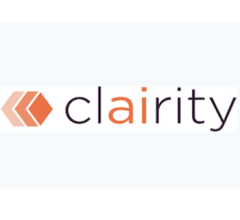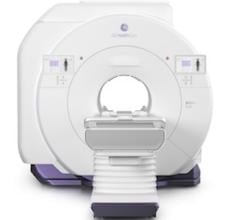
Philips announced that it will be showcasing molecular imaging solutions highlighting Philips’ commitment to innovation and more personalized care at the Society of Nuclear Medicine and Molecular Imaging (SNMMI) 2017 Annual Meeting. Molecular imaging provides insight into molecular and cellular processes in the body, and has the potential to transform healthcare by offering earlier detection and more precise treatment of diseases. Philips continues to bring solutions into the field of nuclear medicine that enhance quantitative accuracy and enable new clinical applications driving more personalized care and workflow efficiencies from diagnosis to treatment.
Nuclear medicine technology has significantly evolved over the years – growing from just scanners to solutions that comprise systems and advanced informatics, for enhanced image quality, quantification and analytics. As value-based care changes the way healthcare organizations approach care delivery, there is a greater need for easy to use, fast and precise imaging. With increased access to better data, clinicians are looking for ways to make that data actionable, especially in terms of customizing patient treatment. Molecular imaging accomplishes that, allowing physicians to make decisions based on the specific molecular and cellular patterns of disease in addition to the patient’s anatomy.
“Molecular imaging today allows physicians to make decisions with greater insight, precision and confidence, bringing healthcare one step closer to personalized care,” said Kirill Shalyaev, Ph.D., Business Leader, Advanced Molecular Imaging, Philips. “Philips has made a lasting impact in nuclear medicine by providing clinicians with innovations such as Time-of-Flight PET and digital PET/CT, and we remain dedicated to developing solutions that simplify the path to clinical decision making for more confident diagnosis and a faster path to treatment.”
Even with its significant growth in past years, the opportunity for further innovation and growth in nuclear medicine remains, continuing to maximize its value and impact. The latest solutions from Philips include:
Vereos Digital PET/CT – A fully digital PET/CT system featuring Philips proprietary Digital Photon Counting (DPC) technology. Vereos offers improved detectability and characterization of small lesions. The system provides uncompromised detectability and quantification at half the PET dose. Vereos also provides lesion detectability in one tenth of the time.
Ingenuity TF PET/CT – Leverages Philips’ Astonish TF technology for enhanced image contrast, resolution, and quality. Features Philips’ proprietary xPand5 quantification tools to assist in measuring and monitoring disease progression. These technologies join CT advances, such as iPatient, iDose⁴ and metal artifact reduction for implants (O-MAR), to drive confidence and consistency through personalized patient centric workflow.
IntelliSpace Portal 9.0 – IntelliSpace Portal 9.0 – The latest edition of Philips’ comprehensive, advanced visualization and analysis platform offers quantitative tumor tracking and treatment response tools with a streamlined workflow for follow‐up and analysis in oncology cases. IntelliSpace Portal 9.0 provides enterprise‐wide access to a comprehensive suite of Molecular Imaging processing and review applications for general Nuclear Medicine, SPECT, SPECT/CT and PET/CT.
SPECT Solutions – To fulfill the need for clinically dependable SPECT systems, Philips provides cost-efficient cardiac and general-purpose SPECT solutions that maximize the return on investment.
For more information: www.philips.com


 February 23, 2026
February 23, 2026 









